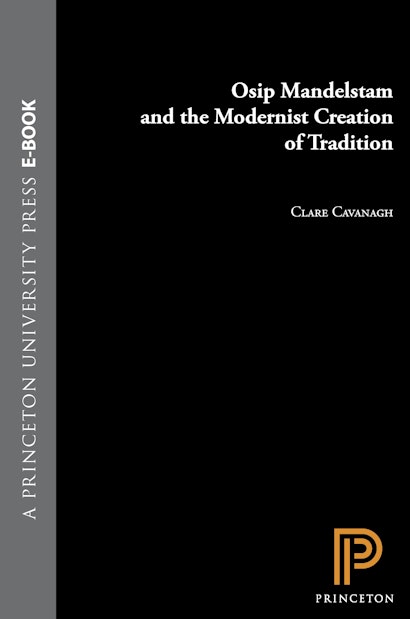Osip Mandelstam and the Modernist Creation of Tradition


ebook (EPUB via app)
- Sale Price:
- $42.00/£35.00
- Price:
-
$60.00/£50.00 - ISBN:
- Published:
- Nov 14, 1994
- Copyright:
- 1995
30% off with code PUP30
ebook (PDF via app)
-
Audio and ebooks (EPUB and PDF) purchased from this site must be accessed on the
91ÌÒÉ« app. After purchasing, you will receive an email with
instructions to access your purchase.
About audio and ebooks - Request Exam Copy
If modernism marked, as some critics claim, an âapocalypse of cultural community,â then Osip Mandelstam (1891-1938) must rank among its most representative figures. Born to Central European Jews in Warsaw on the cusp of the modern age, he could claim neither Russian nor European traditions as his birthright. Describing the poetic movement he helped to found, Acmeism, as a âyearning for world culture,â he defined the impulse that charges his own poetry and prose. Clare Cavanagh has written a sustained study placing Mandelstam’s âremembrance and inventionâ of a usable poetic past in the context of modernist writing in general, with particular attention to the work of T. S. Eliot and Ezra Pound.
Cavanagh traces Mandelstamâs creation of tradition from his earliest lyrics to his last verses, written shortly before his arrest and subsequent death in a Stalinist camp. Her work shows how the poet, generalizing from his own dilemmas and disruptions, addressed his epochâs paradoxical legacy of disinheritance—and how he responded to this unwelcome legacy with one of modernismâs most complex, ambitious, and challenging visions of tradition. Drawing on not only Russian and Western modernist writing and theory, but also modern European Jewish culture, Russian religious thought, postrevolutionary politics, and even silent film, Cavanagh traces Mandelstamâs recovery of a âworld cultureâ vital, vast, and varied enough to satisfy the desires of the quintessential outcast modernist.
Awards and Recognition
- Winner of the 1997 Best Scholarly Book Award, American Association of Teachers of Slavic and East European Languages